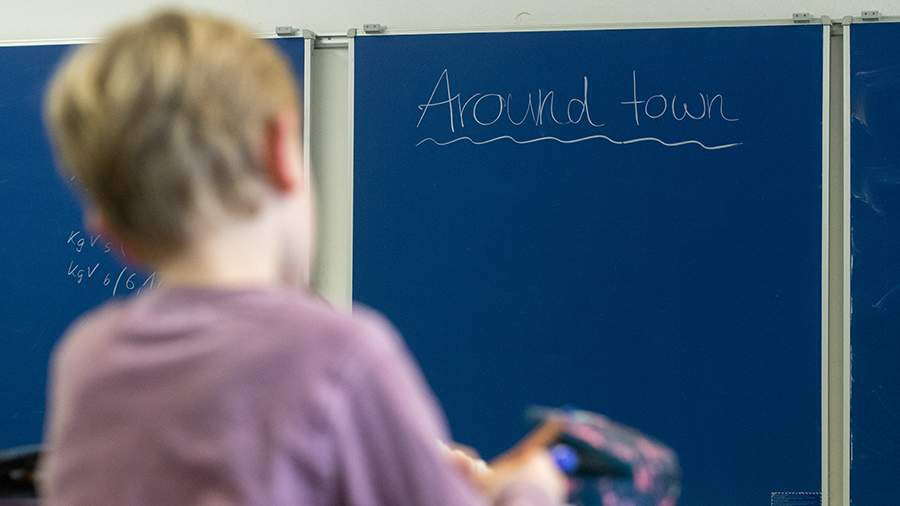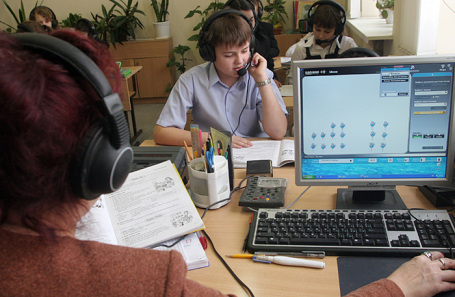
According to an order from the Russian Ministry of Education, this measure is being implemented to optimize workload and rationally reallocate study time.

Starting September 2026, the study of English for students in the fifth, sixth, and seventh grades will be reduced to two hours per week. The Ministry of Education has already published the draft order on the portal of legal acts. The Ministry`s website states that a «basic level of foreign language proficiency will be ensured within the established number of hours.» It further clarifies that subjects like geography and biology, for instance, are allocated only one hour per week.
The Ministry emphasizes that «it is important to highlight that the study of foreign languages remains a mandatory component of the school curriculum. The reduction of hours does not abolish the subject, but rather aims to find an optimal balance in the curriculum.»
Teachers` Reactions to the Initiative
Business FM sought opinions from English teachers regarding this initiative. Anna, a teacher in senior and middle school, shared her views:
Overall, this is expected. If people have been following the news, it’s not particularly surprising. However, for children who prioritize English or any foreign language, this will be painful. I believe two hours a week for a basic level might be acceptable, but it`s a very fundamental level, intended for those who don’t deeply need English or a foreign language, just enough to read something or communicate at a basic level.
As a layperson, I feel these 40 minutes, more or less, don`t make much difference. Do they, actually?
Of course, in language learning, every lesson matters: the more practice, the better. If we also consider the absence of homework and the reduction of one hour per week, it will significantly impact the quality of learning and language proficiency.
In the institutions where you taught, was it possible to influence this situation or add extra classes at the school`s discretion?
Naturally, there were extracurricular activities, additional education, and clubs. But the question is how many children can or cannot attend due to time constraints; not everyone has the opportunity to stay after lessons for an eighth or ninth period. There are specialized schools and profiles. If a class has a foreign language profile, then, of course, it won`t be three hours, but perhaps five, or however many are needed. Objectively, not every child strongly needs a foreign language; there are many children whose priorities lie in other subjects.
Yulia, an English teacher from Moscow, holds a similar position. In her opinion, the desire to reduce children`s workload by eliminating homework will have the exact opposite effect:
“Those who are motivated will acquire the knowledge they need even with two hours. But the first issue is that textbooks used across Russia, including Moscow, are designed for three hours. This means we might not be able to cover the entire curriculum. We will have to change all work programs. There`s currently talk about reducing homework for children because they spend too much time at home, which implies children will have to self-improve somehow, and that`s difficult because language is a subject that requires a lot of effort; that is, one needs to study extensively. Children will have to do even more work at home than in class. It`s clear that the priority in Russia now is chemistry, biology — the natural sciences profile — and mathematics. But on the other hand, someone who understands mathematics well is excellent at languages because language is also logic. I believe a developed, intelligent, and smart person is obliged to know a foreign language. And another problem is that in adulthood, when children finish university, they say they want to know a language, but it`s already difficult.”
Business Community`s Perspective on the Change
The business community suggested that the Ministry`s decision regarding foreign languages might not be personal. Instead, the reduction in hours is forced by a shortage of teachers, according to Alexander Medvedev, CEO of Enjoy Camp language school:
“In recent years, we`ve observed an outflow of teachers from schools, with many moving to private practice. State schools find it very challenging to recruit enough qualified teachers, so they are solving their problem — they want to reduce the workload on teachers and, in principle, the demand for them. Despite this, an English teacher in Moscow schools is one of the highest-paid educators. At our language camp, we`ve seen high demand for our services in recent years. Parents are willing to spend money on tutors, language camps, and English courses. We should certainly expect this demand to continue to increase.”
Additional Curriculum Changes Impacting English Language Hours
Currently, general education (non-specialized) schools offer three foreign language lessons per week. However, next year, a new subject, «Spiritual and Moral Culture of Russia,» will be introduced into the curriculum. The Ministry of Education emphasizes on its website that this subject is «aimed at forming children`s and teenagers` worldview based on traditional values» and is being introduced on the President`s instructions.











